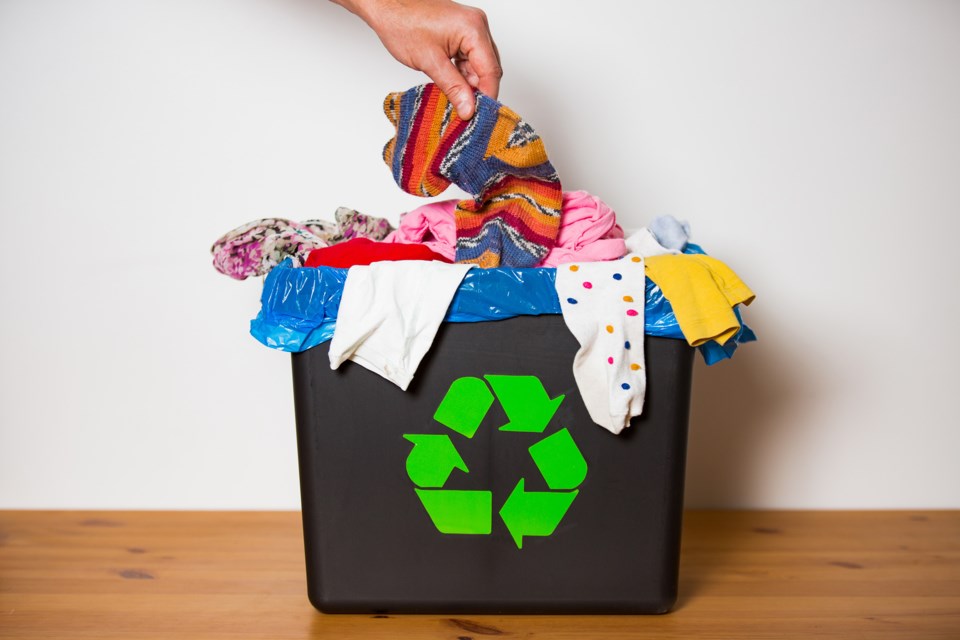The COVID-19 pandemic has changed the way Metro Vancouver residents buy and dispose of clothing, but there are still many ways people can keep textile materials out of the trash. From smart shopping and mending, to creative repurposing and donation, a campaign encouraging people to “think thrice” about their clothes is ready with tips and ideas.
Clothing remains a significant category of waste due to rapidly changing fashion trend cycles and low-cost fast fashion, and textiles account for five per cent of the total garbage produced each year in Metro Vancouver. The region’s residents toss an average of 20,000 tonnes (44 million pounds) of textiles each year — that’s eight kilograms (17 pounds) of clothing per person, or the weight of about 44 t-shirts.
“Consuming less and consuming smarter, along with finding ways to extend the life of your clothing items are by far the best methods to reduce waste,” said Jack Froese, chair of Metro Vancouver’s Zero Waste Committee. “When it comes to donating worn-out and unwanted clothing, many residents have felt uncertain about their options, but the good news is that many charities, thrift shops and pickup services are still accepting donations.”
The Think Thrice About Your Clothes campaign, now in its third year, encourages residents to make smart choices when buying clothes, such as opting for high-quality new or second-hand clothing or even renting for special events. Repairing, altering and repurposing worn or ill-fitting clothes can then prolong the time they spend in use before they are donated or recycled.
The campaign emphasizes reducing and reusing, but also demystifies what types of clothing and fabric can be donated and recycled. Metro Vancouver public opinion research shows that residents are confused about what condition their clothes should be in when they donate and many feel that frayed, stretched, lightly stained or otherwise worn-out clothes should be thrown away and not donated.
However, most second-hand clothing retailers will accept almost anything — even cutoff shorts, holey socks or a single sneaker. Items they can’t use are either repurposed or sold via brokers to markets elsewhere. The key is to make sure donated textiles are clean, dry and packed in a plastic bag or box. It’s important to note that some clothing and donation services in the region have been disrupted by the pandemic, so residents are encouraged to call ahead before dropping off their items.
“Choosing good-quality clothing from local businesses and repairing items can extend the life of your clothes, saving money in the long run,” said Metro Vancouver board of directors chair Sav Dhaliwal. “When it comes time to donate, your items can make a world of difference to local non-profits or those less fortunate in your community, while also helping to protect the environment.”
Since the COVID-19 pandemic has prompted more people to shop online, the campaign will provide tips for online shopping, including thrifting, consignment and renting, as well as ways to reduce instances of online clothing returns.
A weekly interactive Facebook Live series, hosted by Metro Vancouver solid waste experts, will invite residents to learn about sustainable fashion, online shopping and thrifting, clothing rental and sharing options, and more. Participants will be able to submit questions in real time using the Facebook Live comments section. The first session will take place on Metro Vancouver’s Facebook page on Wednesday, March 3 at 12:30 p.m. Residents are encouraged to follow the page for updates and notifications.
Find tips and information about reducing clothing waste on the think Thrice About Your Clothes Campaign website.

